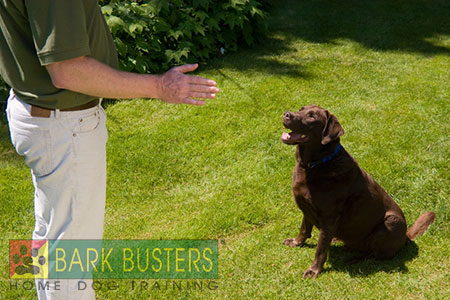Springtime Dog Training Tips
 Now that we have made it through Easter, the days are getting longer, and the fields, hedgerows and gardens are bursting into life, no doubt you can hardly wait to get out and explore the countryside with your dog. So we thought we would put together some tips and advice to help you and your dog stay safe and healthy this Springtime.
Now that we have made it through Easter, the days are getting longer, and the fields, hedgerows and gardens are bursting into life, no doubt you can hardly wait to get out and explore the countryside with your dog. So we thought we would put together some tips and advice to help you and your dog stay safe and healthy this Springtime.Make sure you check that your dog is up to date with preventative treatments for fleas/ticks lungworm and heartworm. Fleas and ticks can cause many problems including flea allergy dermatitis and Lyme disease. Both fleas and ticks can cause dangerous levels of blood loss, especially in young dogs. There are many treatments available that are effective and easy to use, but speak to your vet if you are unsure or feel you would like more advice.
Try to prevent your dog from eating plants and flowers. Unless you are knowledgeable about which plants your dog should definitely not eat, it is best to try to prevent the risk by stopping him from eating any plants. It's also worth remembering that lawn treatments contain herbicides, pesticides and fertilizers that may be harmful to your dog, so don’t allow dogs onto treated lawns until the treatment has dried completely.
Should your dog have allergies to blooms or grasses, you may notice that he develops itchy skin which he persistently scratches, licks or bites. If you are aware that this condition only occurs during three months of the year, you can try oral medications to help. It’s a good idea to speak to your vet who can perform a skin test to pinpoint the allergy and recommend suitable treatments.
Take advantage of the longer days and warmer temperatures to rebuild your relationship with your dog by committing to exercise and training that will re-establish your communication and give your dog a chance to get his brain active again after the long winter months. Practise your lead work, your recall and your basic obedience… the more interactive you are, the more fun your dog will have with you.
Please also be aware of the changes to the laws, rules and regulations covering dogs and their conduct in public places. These may have changed since you last visited the great outdoors. Check whether dogs are allowed to be off-lead in certain areas, take poo bags so that you can clear up after your dog, and make sure that your dog is under your control at all times. We have produced a separate article covering compulsory microchipping which comes into effect on 6 th April this year, but you must also ensure that your dog is wearing a collar and an ID tag that identifies you easily.
Springtime is a very important time for farmers. NEVER allow your dog to run free on agricultural land, especially where there are sheep and lambs. You can gain further information from the National Sheep Association website.
Did you know that a farmer whose livestock is under threat because of an uncontrolled dog is within their rights to shoot your dog. We recommend that you keep your dog on a lead in any area where there may be livestock. During lambing season, sheep can miscarry their lambs if worried. It's also not uncommon for sheep to die as a result of stress caused by worrying.
Be prepared…the weather can change quickly at this time of year so make sure you have equipment to cover a sudden change in climate. You might want to take a dog coat, blankets, or waterproofs in case of rain, but also take water in case the weather warms up, and never leave a dog in a car, whatever the weather. What may seem to be mild temperatures outside can soon turn into oven like temperatures inside a car. It's important to remember that a dog cools down differently than humans and having a fur coat can make for a lethal combination in the car.
Whatever you do, stay safe and have fun with your dog!
Further Information:
Artile: Gina Hinsley - Bark Busters Home Dog Training Bristol
Bark Busters trainers, who have trained more than 1 MILLION dogs worldwide, are renowned authorities in addressing dog behaviour with all-natural, dog-friendly methods. Bark Busters Home Dog Training is the only service of its kind that offers a worldwide guaranteed lifetime support. With over 350 offices in 7 countries, Bark Busters is continuing its mission to enhance the human-canine relationship and reduce the possibility of maltreatment and abandonment. For more details, call freephone 0808 100 4071 or visit www.BarkBusters.co.uk
